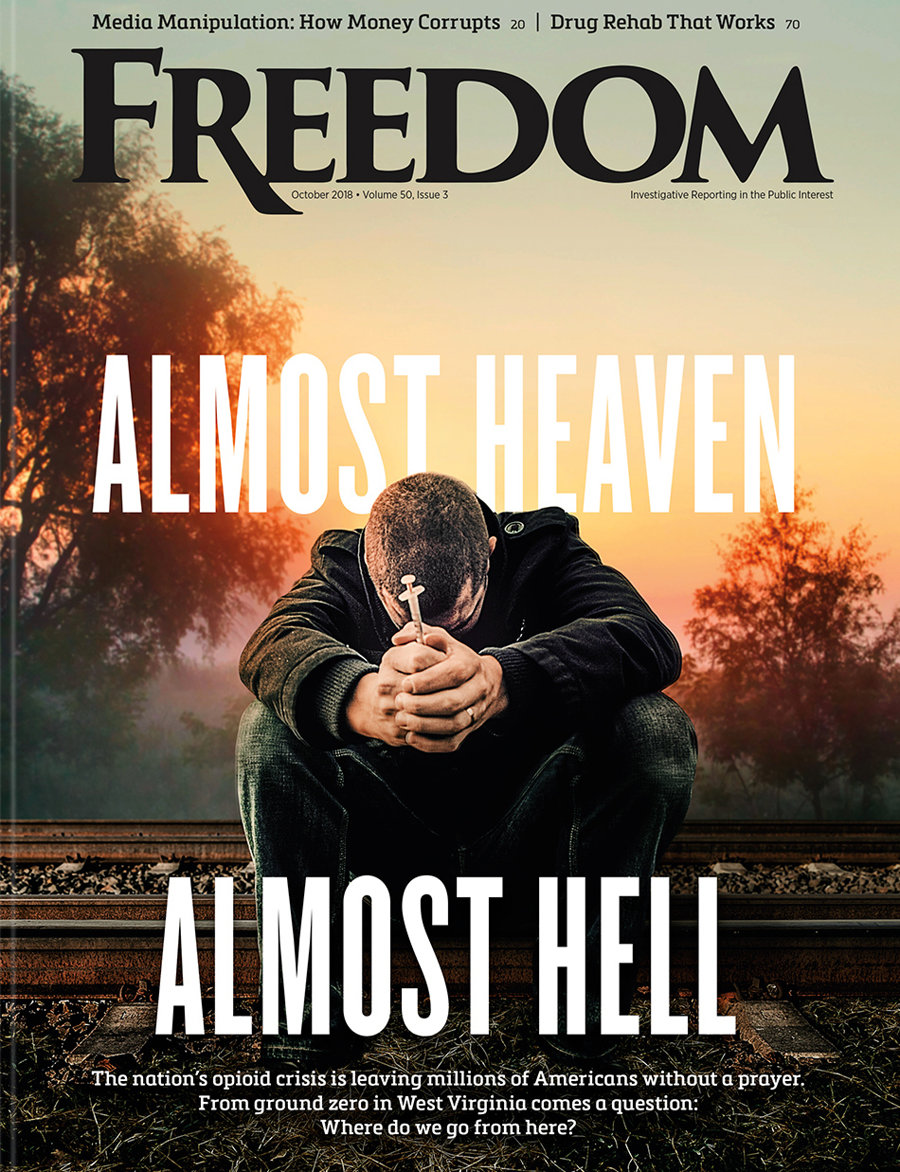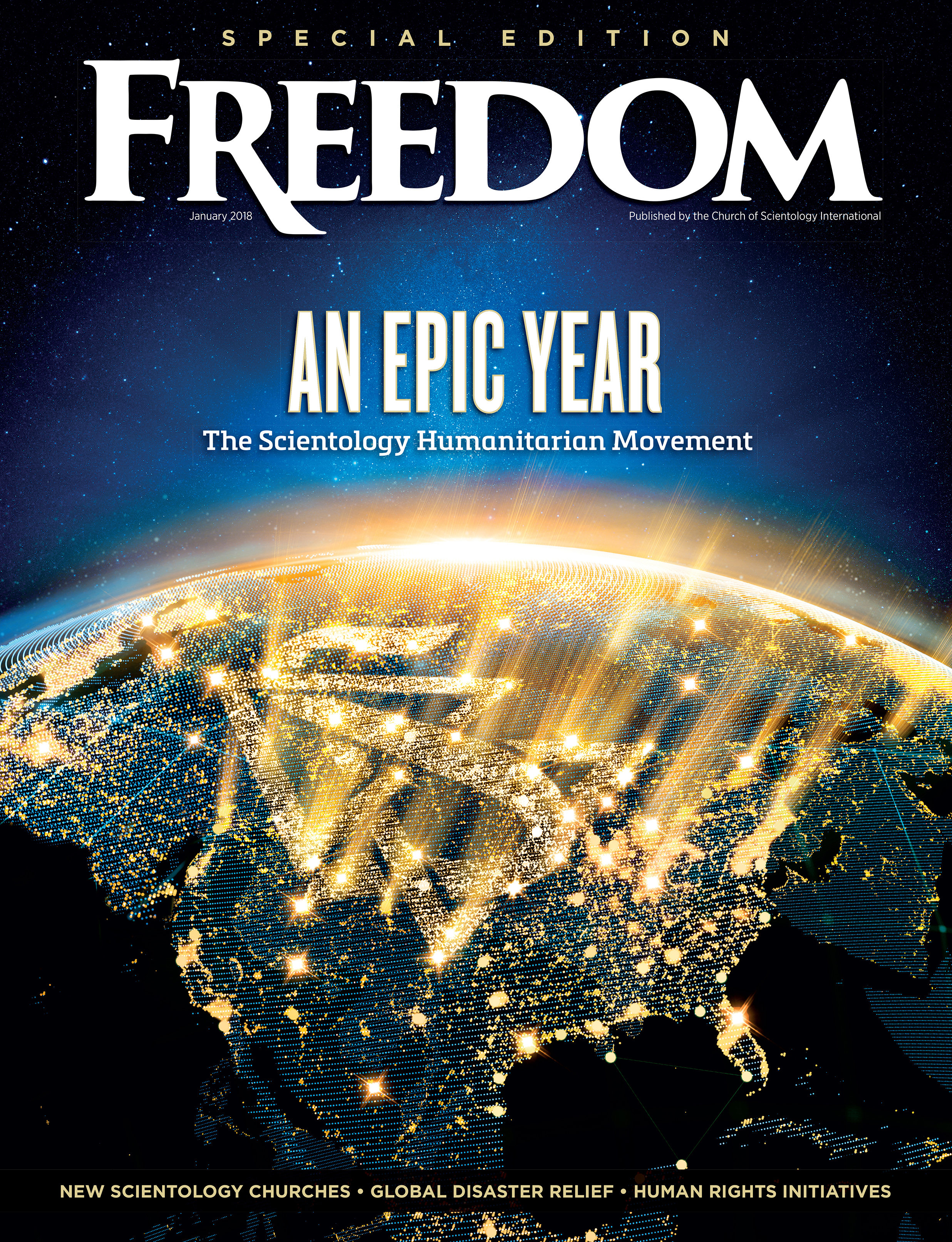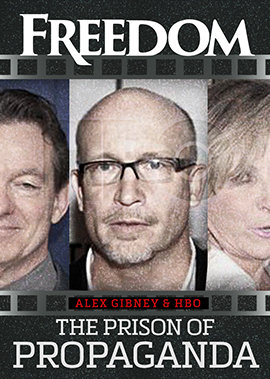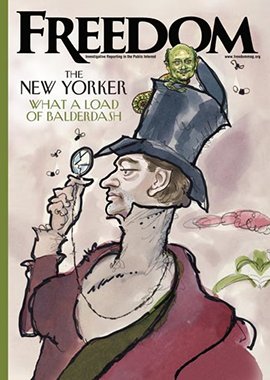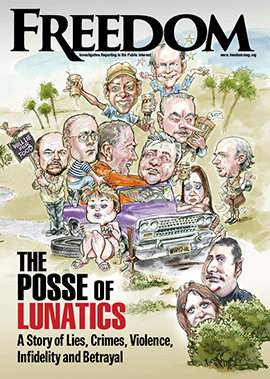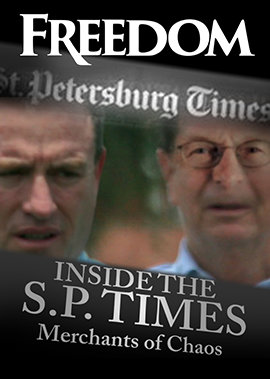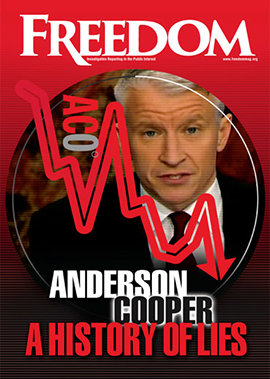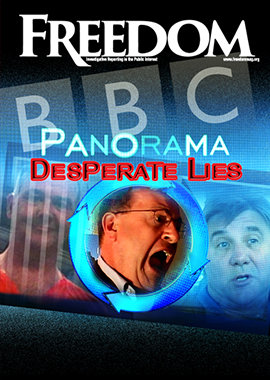
The United States Commission on International Religious Freedom (USCIRF), created by an act of Congress 26 years ago, is a bipartisan federal agency charged with detecting violations of religious freedom, spotlighting the offending countries and recommending economic and political sanctions that put accountability where there once was none.
USCIRF Chair Stephen Schneck brings a background combining activism and scholarly reflection to the leadership position he assumed earlier this year.
In honor of the 26th anniversary of USCIRF, Chair Schneck shared his thoughts with Freedom Magazine on the vital necessity of preserving freedom of religion or belief around the world and of America’s crucial role.
Freedom: When did you first become aware of the importance of religious freedom? Did it mean anything different to you then than it does now?
Stephen Schneck: While I’ve always been aware of and supported freedom of religion or belief, it has become powerfully poignant for me personally in my years at USCIRF. You cannot but be changed as you hear from victims, their families and their representatives. Listening to accounts of people tortured, imprisoned, disappeared, murdered because of what they believe or don’t believe is something you can never forget.
“Religious freedom” is a term that gets used a lot, and it’s something we all want. Universal religious freedom is a long-term goal, for sure. But do you see any hopeful signs? Are we picking up momentum? Are there any indicators that you look for that, when you see them, make you think, “Aha! We’re getting there!”
To me, one of the most hopeful signs is the scope and momentum of the international religious freedom movement today. Numerous governments now prioritize this issue in their foreign policies and cooperate through networks like an international contact group and the Article 18 Alliance. Parliamentarians from a range of countries work together through their own network. And NGOs cooperate through various roundtables. This is key because religious persecution is a global problem that requires global solutions.
What is it like to work with a group of commissioners from such varied political, ethnic and religious backgrounds?
Honestly, it is an inspiring privilege to work with commissioners of so many faiths and different political perspectives. I’m proud that we work so well together, modeling our mandate for religious freedom and bipartisanship.
Thomas Jefferson famously said: “The constitutional freedom of religion [is] the most inalienable and sacred of all human rights.” Do you agree? If so, why?
I believe that all human rights hang on the idea that to be human is to be able to think and believe freely. Freedom of religion is a fundamental expression of that same idea. So, yes.
What would happen if America didn’t play a leadership role in global religious freedom?

With the many blessings enjoyed by the United States comes a moral imperative to model and share those blessings. Whether you believe these blessings are owed to providence or to the fortunes of history, the responsibility cannot be shrugged. I’m proud to serve our country in my role with USCIRF, recognizing that responsibility as it relates to religious freedom. I recognize as well that, without the United States taking the lead among nations in protecting and promoting the rights of religious freedom and belief, millions more around the world would be without them. The world owes a debt to leaders like Frank Wolf, who perceived the need and the responsibility. [Wolf is a former Congressman whose work was vital to the passage of the International Religious Freedom Act of 1998, which created USCIRF.]
No country puts more resources toward promoting international religious freedom in its foreign policy than the United States. If this were no longer the case, US leadership would be sorely missed. But I don’t foresee that happening. For more than 25 years, international religious freedom has been a high priority of Republican and Democratic administrations alike, and it remains an issue with strong bipartisan support.
Your Wikipedia page describes you as an American Catholic activist. Over the years, you’ve been a board member for various Catholic advocacy groups. Was there an event or turning point when you decided that activism in a Catholic framework was your life’s path?
Yes. My calling, as it were, came from an idea that emerged in Catholic thoughts after Vatican II. It’s the argument that the measure of our common life together should be how the poorest among us fare. This way of thinking comes from the Latin American Catholic experience, which is sometimes termed the “preferential option for the poor.” I understand the “poor” not as an economic term alone, but rather all those who are vulnerable, marginalized, repressed or powerless. That idea changed me and called me to take up social justice. It became the way in which I could understand the Gospels and the mission for Christianity in the world.
How has your Catholic faith influenced your wish to fight for the religious freedom of others?
Here in the United States, Catholics experienced bias and discrimination in years past, like so many other minority religions over the course of American history. That history certainly sharpened my own appreciation of the importance of freedom of religion or belief. While I’m unsure how true it was, my grandmother, for example, was known to tell of when the KKK burned a cross by her church as a child. But, also it was the change in my church’s thinking to embrace the idea of religious freedom after Vatican II that really undergirds my own championing of freedom of religion or belief.
Did outgoing Chair Rabbi Abraham Cooper share any advice with you when you were elected his successor?
I miss Rabbi Cooper. While he did not pull me aside to share some private counsel, I have shamelessly stolen many of Rabbi Cooper’s little tricks for running meetings. He was a master.
Who is on your personal Mount Rushmore? Why?
It will embarrass him, I know, but I would put my former colleague Frank Wolf on my personal Rushmore. I admire his personal integrity and passion for religious freedom and for the country. We may belong to different political parties and there are many issues in political life about which we disagree, but he’s an exemplar for principled service to the nation and its ideals.
Political theorist and philosopher Fred Dallmayr, who died earlier this year, was the subject of a volume you edited, Letting Be. Do you find his cosmopolitical vision of the world an influence on how you approach your job now?
Thanks for asking about Fred Dallmayr. Yes, Fred’s vision for a diverse, multicultural world that did the doing of civilization through dialogue and mutual respect remains a formative part of my own approach—not only to my work on the Commission, but also to my engagement in American public life.
Looking at USCIRF’s map of the world, the Countries of Particular Concern and Special Watch List countries are overwhelmingly in the Eastern Hemisphere. Is there anything more that USCIRF can urge the US to do regarding sanctions for those countries? Is there some path forward on these?
In USCIRF’s view, the US government needs to focus more on consequences and accountability for egregious religious freedom violators, including China. Reports and public statements are important in terms of highlighting abuses, but they are not enough to change repressive governments’ behavior. USCIRF has recommended that the United States impose more targeted sanctions on Chinese individuals and entities responsible for abuses, including within the Chinese Communist Party’s United Front Work Department and the public security and state security apparatus. USCIRF also has urged Congress to ban lobbying in the United States on behalf of the Chinese government or its state entities.
Why should American citizens care about religious freedom in other countries?
Ideas and ideals, like viruses, do not respect national borders. For good and, sadly, for ill they spread broadly—and in this age of social media and an increasingly global culture, they can spread like wildfire. At this historical moment, a surge of dangerous notions are infecting nation after nation. In particular, the rights of conscience, belief, faith and religion are falling victim to the virus of authoritarianism as it spreads globally. Upholding the right to freely believe and practice faith in India or Hungary or Nicaragua is thus a defense of our own freedom of religion or belief in our own homes and neighborhoods. Even more importantly, these rights are utterly at the heart of human dignity itself.
Americans should care about religious freedom because of the human costs of its absence. Millions of people around the globe suffer persecution or discrimination simply because of what they believe. Americans should also care for an important practical reason. Countries that repress religious freedom are more likely to be unstable and violent than those that protect it. As a result, promoting religious freedom is not only a matter of humanitarian concern, it is a matter of international security and peace.






